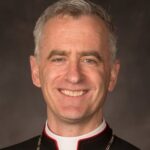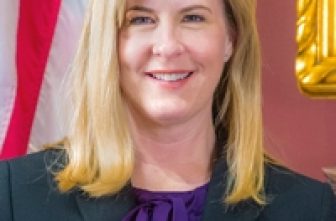“At once the Spirit drove (Jesus) out into the desert, and he remained in the desert for forty days, tempted by Satan. He was among wild beasts, and the angels ministered to him” (Mk 1:12-13, NAB Revised Edition).
We were confronted with this mysterious scene on the First Sunday of Lent. We may recall that the narrative of Jesus’ temptation in the desert comes right after his baptism in the Jordan, where the Holy Spirit descended upon him “like a dove” (Mk 1:10).

We cannot help but notice that the first work of the Spirit of Jesus’ baptism was to drive him into the desert. The Greek verb “ekballein” is forceful and is used elsewhere by Mark to describe how Jesus “drives out” evil spirits. The evangelist is telling us that not going into the desert was not an option for Jesus.
Pope Benedict XVI understood that Jesus’ 40 days in the desert was “an inner struggle for fidelity to the (messianic) task, a struggle against all the distortions to the task that claim to be its true fulfillment” (“Jesus of Nazareth,” p. 26). The fasting of the body and the silence of the desert brought Jesus to a place of interior recollection that allowed him not only to experience that “one does not by live by bread alone” but also to hear the words that “(came) forth from mouth of God” (Mt 4:4) and to use those very words to reject the counterfeit messianic temptations proposed by Satan.
Notwithstanding the many peaceful and formative years that Jesus enjoyed in the bosom of the Holy Family of Nazareth, Mark helps us to see that the most important preparation for Jesus’ messianic ministry occurs during his 40 days in the desert. So it is for us as followers of Jesus. Notwithstanding all the graces that the Church extends to us in our daily walk as disciples — daily readings, the Mass, the Liturgy of the Hours, small group fellowship and prayer — it is often time away from daily life when our greatest purification occurs as well as the most important preparation for our unique mission in the Body of Christ.
I understood this from a very early age. I have distinct memories of my father and mother leaving our “domestic church” to be in silence with God at the Demontreville Jesuit Retreat House and the old Maryhill Retreat Center, respectively. This became part of the yearly rhythm of their Christian lives, and it evoked some wonderment in me as a small child. Evidently, it evoked wonderment in my siblings as well since each of them have heeded their example and have incorporated a yearly retreat into the fabric of their own lives as disciples. When they return, the people around them (and perhaps especially my brothers’ wives!) can almost see the spiritual transfiguration written on their faces.
We know from Jesus’ own example, however, that time in the desert is also a time of confrontation. Pope Francis reminds us of this in his 2024 Lenten message: “The voice of God, who says, ‘You are my Son, the Beloved’ (Mk 1:11), and ‘You shall have no other gods before me’ (Ex 20:3) is opposed by the enemy and his lies. Even more to be feared than Pharaoh are the idols that we set up for ourselves; we can consider them as his voice speaking within us. To be all-powerful, to be looked up to by all, to domineer over others: every human being is aware of how deeply seductive that lie can be. It is a road well-travelled. We can become attached to money, to certain projects, ideas or goals, to our position, to a tradition, even to certain individuals … (Whereas) those who serve idols become like them, mute, blind, deaf and immobile (cf. Ps 114:4), the poor of spirit are open and ready: a silent force of good that heals and sustains the world.”
What a beautiful summary of the graces of time in the desert with Jesus. In a word, the Holy Father teaches us, that grace is freedom: freedom from the idols presented to us by our egos and by Satan and freedom for the abundant life and mission that God the Father has planned for each one of us. I have experienced this in my own life and in the lives of those around me. That is why, since the very beginning of my priesthood, I have preached to my parishioners the virtue of making a yearly retreat.
How thrilled I was, then, four years ago when a group of Latinos approached the Jesuit community at Demontreville about the possibility of having a weekend retreat in Spanish. I had the privilege in July 2022 of seeing that retreat house full of Latino husbands, fathers and single persons and of offering them all a blessing as they embarked upon the first Spiritual Exercises in Spanish offered in that place!
As you will read in this edition of The Catholic Spirit, the Holy Spirit is moving powerfully in our midst to raise up new opportunities for the faithful to make silent retreats — even retreats of eight or more days — in this archdiocese and beyond. This can only be the same baptismal Spirit that drove Jesus into the desert. May we allow the Spirit of our own baptisms drive us into the desert this coming year. There is important work to be done in us there, and we will discover that this yearly gift we give to God is really his precious gift to us, to those around us and to the Church we love.




